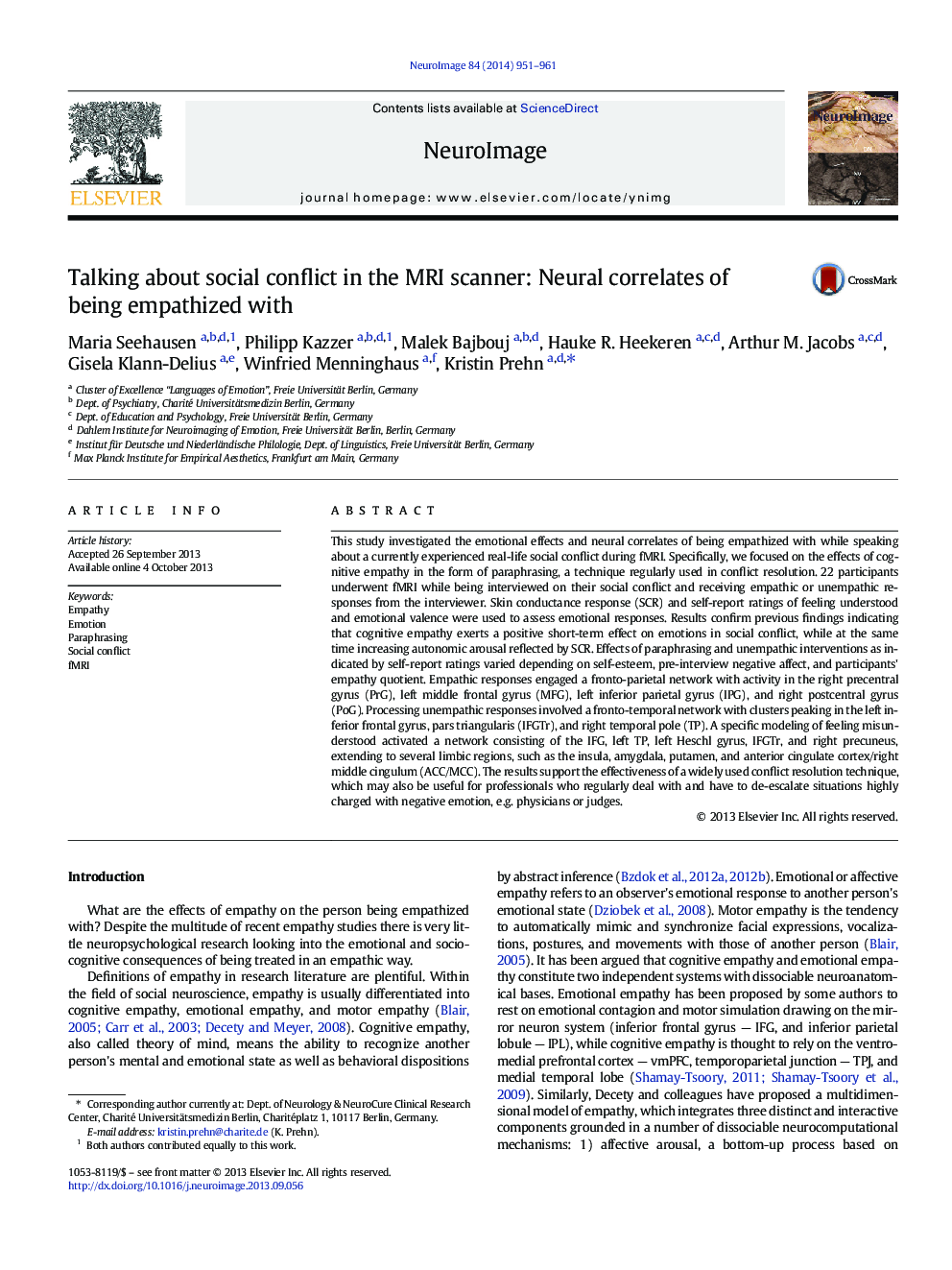| Article ID | Journal | Published Year | Pages | File Type |
|---|---|---|---|---|
| 6028629 | NeuroImage | 2014 | 11 Pages |
•Neural correlates of being empathized with were investigated.•This was done in a real-life conversation about a social conflict in the MRI.•Cognitive empathy in the form of paraphrasing can buffer negative emotions.•Not feeling understood fuels negative emotions when speaking about social conflict.
This study investigated the emotional effects and neural correlates of being empathized with while speaking about a currently experienced real-life social conflict during fMRI. Specifically, we focused on the effects of cognitive empathy in the form of paraphrasing, a technique regularly used in conflict resolution. 22 participants underwent fMRI while being interviewed on their social conflict and receiving empathic or unempathic responses from the interviewer. Skin conductance response (SCR) and self-report ratings of feeling understood and emotional valence were used to assess emotional responses. Results confirm previous findings indicating that cognitive empathy exerts a positive short-term effect on emotions in social conflict, while at the same time increasing autonomic arousal reflected by SCR. Effects of paraphrasing and unempathic interventions as indicated by self-report ratings varied depending on self-esteem, pre-interview negative affect, and participants' empathy quotient. Empathic responses engaged a fronto-parietal network with activity in the right precentral gyrus (PrG), left middle frontal gyrus (MFG), left inferior parietal gyrus (IPG), and right postcentral gyrus (PoG). Processing unempathic responses involved a fronto-temporal network with clusters peaking in the left inferior frontal gyrus, pars triangularis (IFGTr), and right temporal pole (TP). A specific modeling of feeling misunderstood activated a network consisting of the IFG, left TP, left Heschl gyrus, IFGTr, and right precuneus, extending to several limbic regions, such as the insula, amygdala, putamen, and anterior cingulate cortex/right middle cingulum (ACC/MCC). The results support the effectiveness of a widely used conflict resolution technique, which may also be useful for professionals who regularly deal with and have to de-escalate situations highly charged with negative emotion, e.g. physicians or judges.
